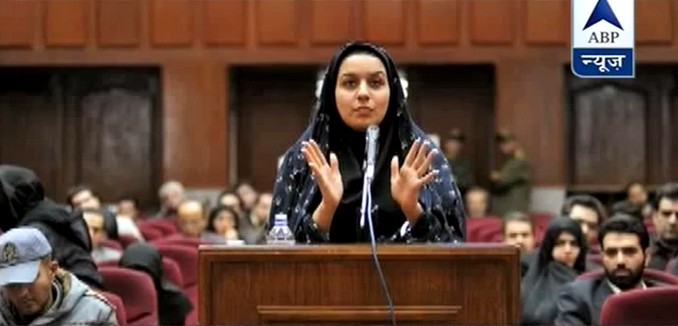Reyhaneh Jabbari, a 26 year old Iranian woman, was hanged Saturday after international pleas to spare her life were disregarded by the Iranian government.
Reyhaneh Jabbari was hanged at dawn in Rajaie Shahr prison outside Tehran after spending seven years behind bars. She was the 967th person to be executed since Hassan Rouhani took office as Iran’s president on 4 Aug 2013, according to the Iran Human Rights Documentation Centre.
The state media announced that Miss Jabbari had been put to death after the family of the man she was accused of killing declined to grant a reprieve. Her mother, Shole Pakravan, confirmed the execution and said she was going to a cemetery to identify her daughter’s corpse.
Jabbari claimed that though she stabbed her assailant in self defense, it was not her but another unidentified person who actually killed him. The government never investigated her claim.
In recent weeks authorities had told Jabbari that she was to be executed, but, apparently due to international pressure, postponed the date.
In April, Jabbari left a final message for her family that has been translated. Part of it read:
The world allowed me to live for 19 years. That ominous night it was I that should have been killed. My body would have been thrown in some corner of the city, and after a few days, the police would have taken you to the coroner’s office to identify my body and there you would also learn that I had been raped as well. The murderer would have never been found since we don’t have their wealth and their power. Then you would have continued your life suffering and ashamed, and a few years later you would have died of this suffering and that would have been that.
However, with that cursed blow the story changed. My body was not thrown aside, but into the grave of Evin Prison and its solitary wards, and now the grave-like prison of Shahr-e Ray. But give in to the fate and don’t complain. You know better that death is not the end of life.
In the message Jabbari also said how “she trusted the law,” expecting to be exonerated.
Despite President Hassan Rouhani’s campaign promises, the United Nations and human rights organizations have criticized his government for failing to make any progress in allowing greater freedoms for women. An Iranian actress, Leila Hatami, apologized to authorities after she was threatened with flogging for kissing the head of the Cannes film festival in May. Iranians who appeared in a video lip-synching and dancing to Pharrell Williams’ song “Happy” were sentenced to lashes. Earlier this month, Ghoncheh Ghavami, a British-Iranian citizen began a hunger strike after being jailed for one hundred days for watching a men’s volleyball game.
Some Iranians have fought back against the ongoing gender discrimination. Recently an actress, Narjes Mohammadi, refused to appear at public celebration after it was announced that she would appear fully covered. Last week hundreds of Iranians in the cities of Tehran and Isfahan protested acid attacks against women who were reportedly deemed insufficiently covered.
Jabbari’s execution not only highlights the Rouhani administration’s poor record on women’s rights, but also the spike of executions that has occurred during his tenure, which was bolstered by the appointment of Mostafa Pour-Mohammadi as justice minister. Rouhani’s appointment of Pour-Mohammadi, known as “Minister of Murder” for his role in thousands of summary executions during the 1980’s, drew condemnations from multiple human rights organizations. The rise in executions was one factor in prompting the European Union to blast Iran’s “continued, systemic violation of fundamental rights” in April of this year.
[Photo: ABP NEWS / YouTube ]




